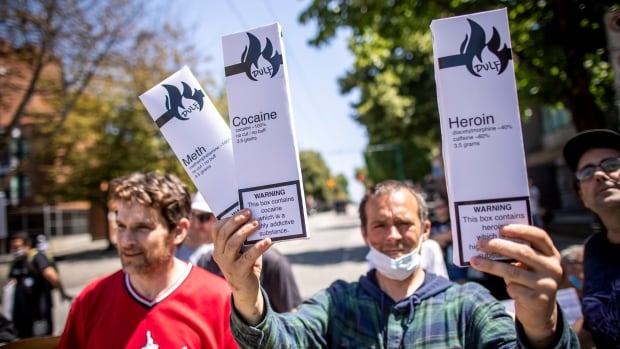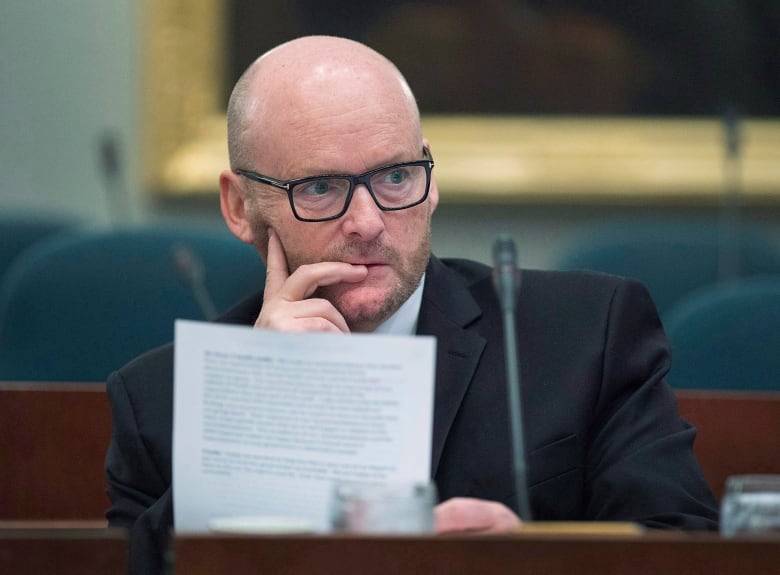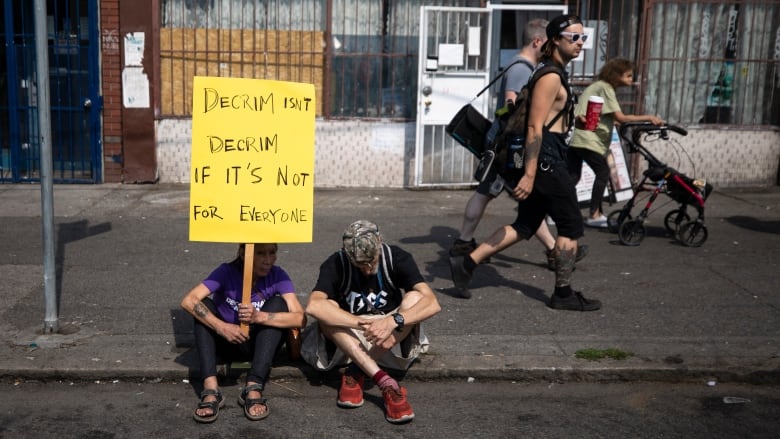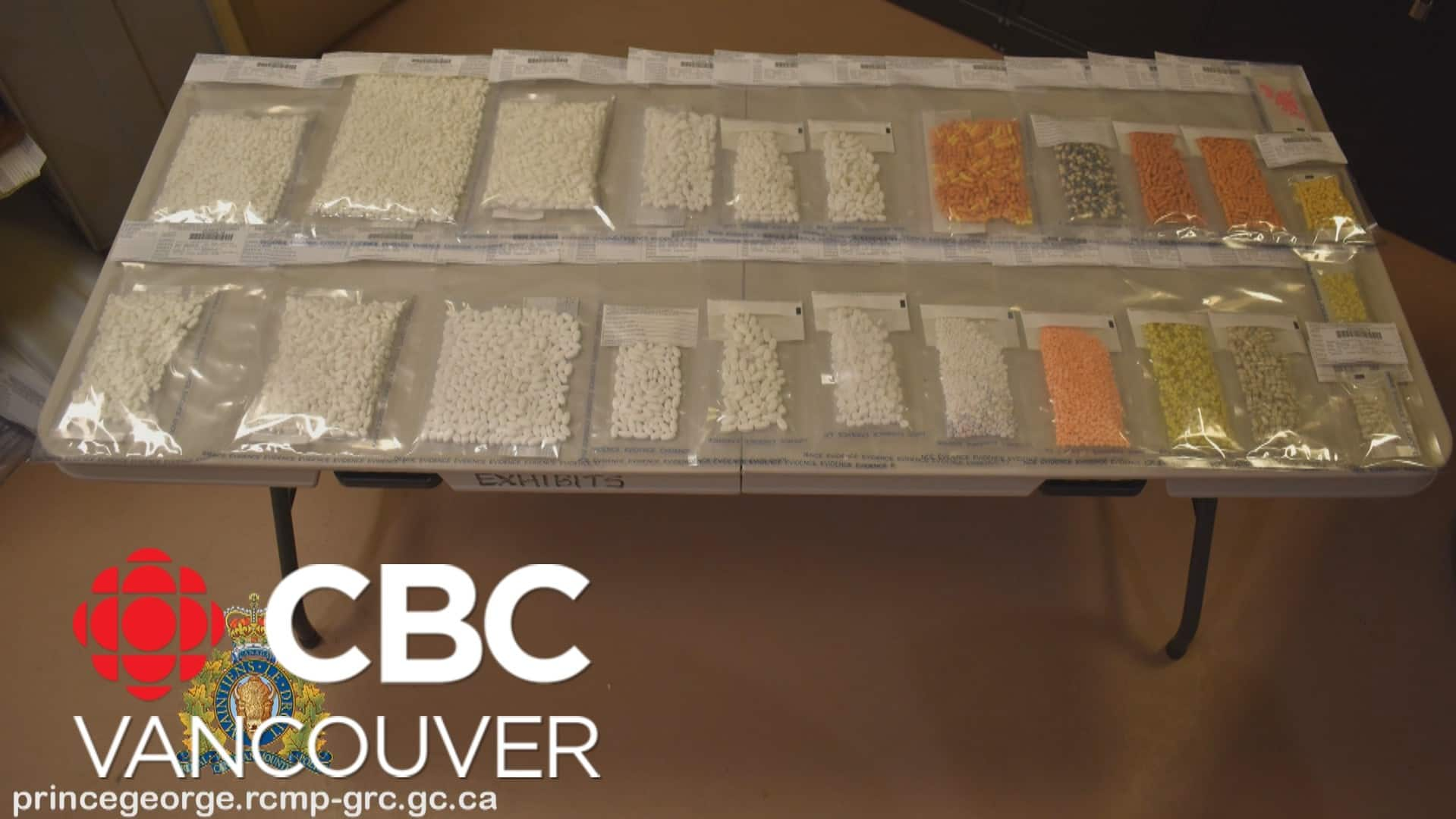
British Columbia’s auditor general says two government programs aimed at curbing the death toll from the toxic-drug crisis were not “effectively implemented” by the province’s Ministry of Mental Health and Addictions and Ministry of Health.
Michael Pickup’s office released a report Tuesday on the government’s overdose prevention and supervised consumption services and the first phase of the prescribed safer-supply program, launched amid a public-health emergency that has claimed more than 14,000 lives.
“In both of these audits we found significant deficiencies in the provincewide implementation of these programs,” Pickup said in a press conference.
The audit found the ministries’ guidance didn’t include minimum service standards that ensured consistent quality and access of services, that it did not adequately respond to barriers such as local government resistance, and that a new program evaluation was needed as the health emergency evolved.

B.C. is the first province to have a safer-supply program, which allows medical prescribers to give substance users regulated versions of some opioids.
The program has generated criticism from federal Conservative Leader Pierre Poilievre and Alberta Premier Danielle Smith, who both claimed that drugs from the program were being diverted into the rest of Canada.
Earlier this month, RCMP in Prince George said they seized pills, which included morphine and hydromorphone, two of the drugs in B.C.’s program offering prescribed alternatives to people at risk of overdose from consuming toxic street drugs.
Elenore Sturko, mental health critic for the Opposition B.C. United, has expressed concerns that some of the regulated drugs may be making their way to unintended substance users without a prescription, known as diversion.
WATCH | No evidence safe-supply drugs being diverted into illegal market, say police:
After Alberta Premier Danielle Smith and Conservative Leader Pierre Poilievre used a recent drug seizure in Prince George to criticize B.C.’s safer supply program, the B.C. RCMP is clarifying that there is no evidence to support a widespread diversion of safer supply drugs in the illegal market.
“We’ve seen that there [is] the risk of population-level harms with diversion … there’s potential that these drugs are helping fund organized crime,” Sturko said during an interview with CBC News.
B.C. RCMP assistant commissioner John Brewer said there is “currently no evidence to support a widespread diversion” of the legally prescribed substances to the illegal drug market.
Mike Farnworth says he’s spoken to the RCMP’s commanding officer in B.C. about the drug seizure in Prince George and was told the idea that there is widespread diversion is “simply not true.”
The auditor general wrote that the ministries’ communication “about prescribed safer supply, specifically about diversion, has been weak.”
Province’s lack of transparency
Pickup says assessing the program’s success will require “high-quality evaluation data” and more transparency.
“This is a novel program that requires … to build trust. However, we found weaknesses in the transparency and communication,” he said.
The audit states there’s no communication plan in place for the ministries to publicly report the outcomes on aspects such as decreasing the use of unregulated drugs, reducing illicit drug toxicity injuries and deaths, and mitigating potential harms of prescribed safer supply.
Critics like Sturko argue there isn’t any evidence to suggest the safe supply program will help address the drug overdose crisis in B.C.
“If they had evidence that showed it was [working], I think they would be using that to defend their programs. They would be using that to tell me to be quiet,” she said. “The fact that they haven’t tells me that it’s probably [not working].”
However, Kora DeBeck, a research scientist with the B.C. Centre on Substance Use, says there is ample evidence that prohibiting and criminalizing drug possession has been a failure.
“We know that incarceration and law enforcement does not work. It does not keep drugs off the street,” said DeBeck, who also teaches public policy at Simon Fraser University.
“There’s strong scientific evidence demonstrating that [decriminalization] is highly effective in reducing risky behaviour and improving surrounding communities.”
Need for expansion
Pickup’s audit found the ministries didn’t make “significant progress” in tackling their “most challenging barriers,” such as rural access to the program, health-care providers’ hesitancy about prescribing the drugs and whether the drugs being offered were appropriate.

Last month, a report from Provincial Health Officer Dr. Bonnie Henry called on the B.C. government to broaden the availability and types of drugs that can be prescribed under the province’s safer-supply program.
The program reached over 4,200 people in December 2023. According to the province’s estimates, over 115,000 people are living with opioid use disorder in B.C.
“In terms of coverage that’s just about four per cent,” said DeBeck.
She says the safe supply program and supervised consumption services must be expanded.
“It is a very tiny percentage of the population that is at risk of a fatal overdose that are able to access the service.”
There are just under 50 overdose-prevention sites across the province and the B.C. Coroners Service says there has been one death in the province at a site this year.
The auditor general’s report recommends targeting rural and remote communities.
Premier David Eby acknowledged that it’s going to be a challenge to expand the programs.
“It’s a challenge to deliver health care in rural parts of B.C. … to make sure we’re responding to the rapidly evolving nature of this crisis,” he said during an unrelated press conference Tuesday.
“We’ll do all we can to ensure minimum standards of care for all British Columbians.”
